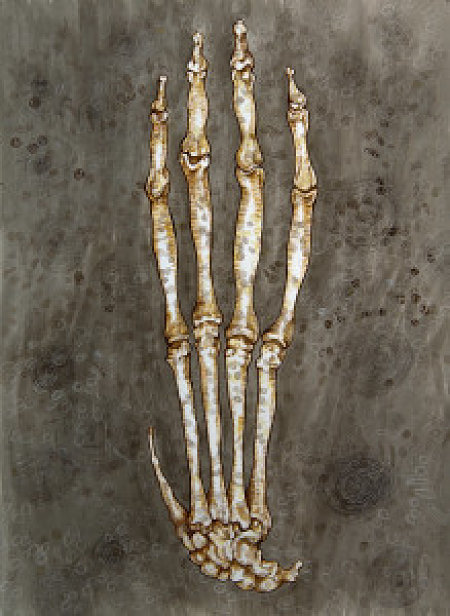
Two Eternities
*
Today was his second day in the mountains. He’d spent the previous night holed up in a thicket of snow-laden junipers, where he’d pitched his camp among the boulders and gone to sleep with the cold fingers of the wind stroking his tent. He’d had a long time to think about Jamison since then—an entire day—and the closer he came to the cabin, the clearer and more crystalline those thoughts had made themselves. Yet they were still just fragments. Flakes coming down here and there that hadn’t yet fallen into place, completing the picture that was struggling to find its way into his mind’s eye.
He drove his poles into the powder with great deliberation, raising and setting one snowshoe in front of the other, and as he drew nearer to the cabin he looked across the sparkling terrain, imagining he saw a face in one of the frosted windows, though when he looked again it was gone. Passing, like a shadow.
The cabin door banged open in what seemed an enthusiastic welcome as he plodded into the yard. But no sooner had it swung wide on its creaking hinges than an invisible hand slammed it shut again, the ghostly proprietor within changing his mind, it seemed, upon seeing who it was.
The porch was dusted over with fine light snow that slumped against the walls and stretched out, thinly and unevenly, over the weathered planking. The cabin’s shake roof, which lay like outstretched wings over the logs, was betoothed with icicles, and in the yard, the rusty water pump bore a thin ridge of white powder that clung to the handle and spout.
It was Jamison who’d introduced him to the cabin, explaining that it was the custom of the Forest Service to leave such places open in the winter. It’s up near Hardscrabble Pass, he’d said. It’s a bastard of a hike, but when you get there, it’s worth it. It’s like you own the mountain. We should scare up some cross-country skis and head out there for a weekend.
Cassidy and Jamison had both grown up in Denver. They’d met freshman year during the first days of their American literature class at Denver University, shaking hands across the aisle after Jamison discovered that Cassidy was a fan (devotee was the term Jamison used) of Thoreau.
Congratulations, Cassidy.
For what?
It takes courage to admit something like that.
Something like what?
That you’re a devotee of Thoreau.
Cassidy, mildly offended, had called Jamison on the remark, demanding to know what was wrong with Thoreau. Walden, he insisted in a bumbling, stumbling, fumbling defense of what he believed to be his literary hero’s finest work, was a masterpiece.
Oh, it is! Jamison piped, smiling graciously and waving the insult away. It’s first-rate prose. First-rate prose from a second-rate mind.
Cassidy dismissed Jamison as a phony that day, calling him a snob and a poseur (though not to his face), and shaking his head whenever Jamison leapt to his feet and lapsed into quotation, a la the reincarnation of P.M. Roget himself. Yet, for all the disdain Cassidy felt for the wild young man, there was something about him he found—what—compelling? And so it was that when Jamison stopped him in the hallway after class that Friday afternoon and suggested they abandon their studies and head off to the mountains with their skis, Cassidy, despite his doubts, found himself accepting the invitation.
